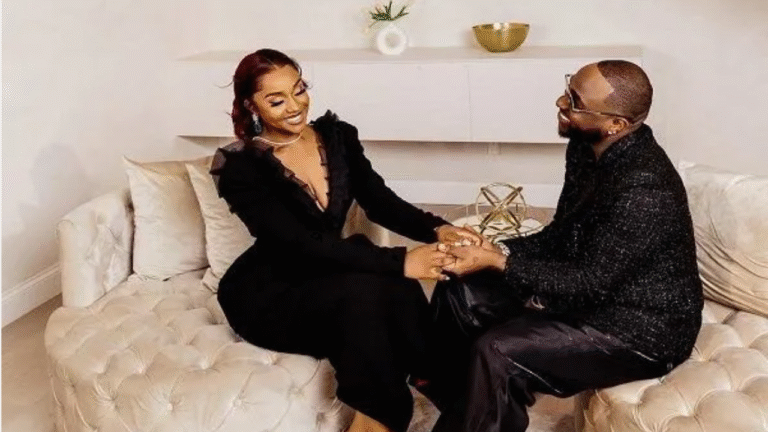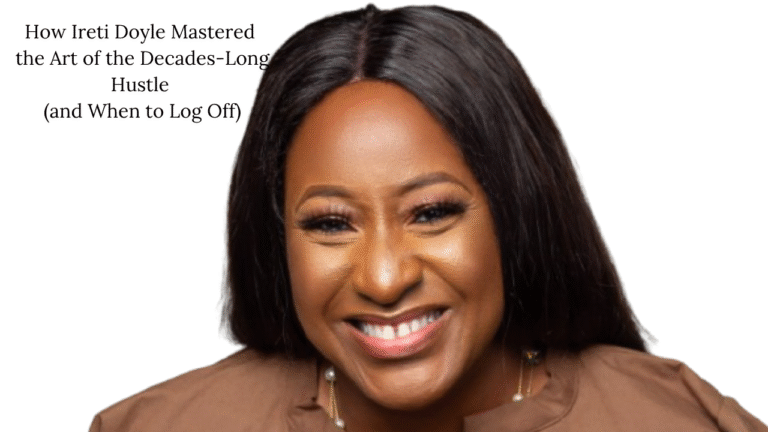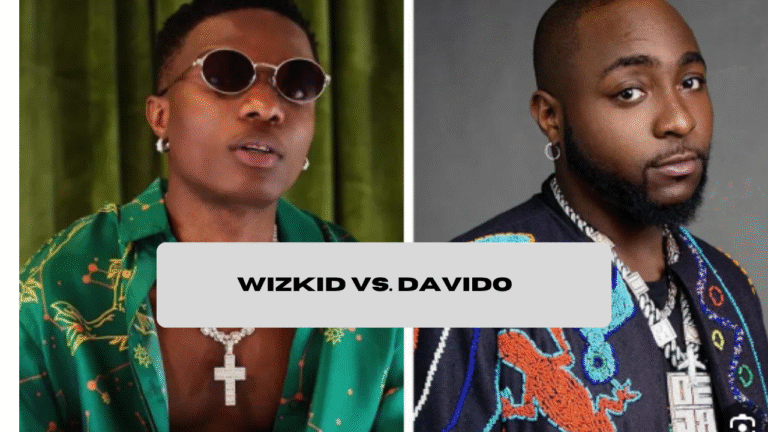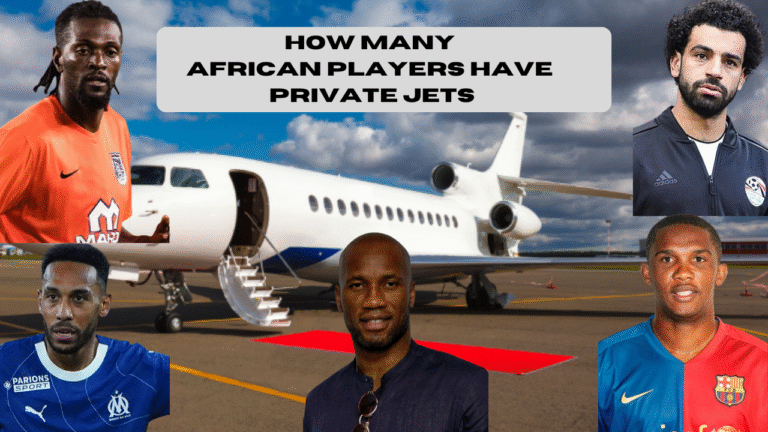
Rudeboy
For years, he was one half of Africa’s most iconic music duo, the quiet force alongside his dynamic twin. Now, Paul Okoye, known globally as Rudeboy, has carved out his own formidable path in the Afrobeats landscape. From the dazzling heights of P-Square’s reign to navigating a challenging solo journey and an eventual reunion, Rudeboy’s story is one of unwavering dedication to the craft, familial complexities, and undeniable musical talent.
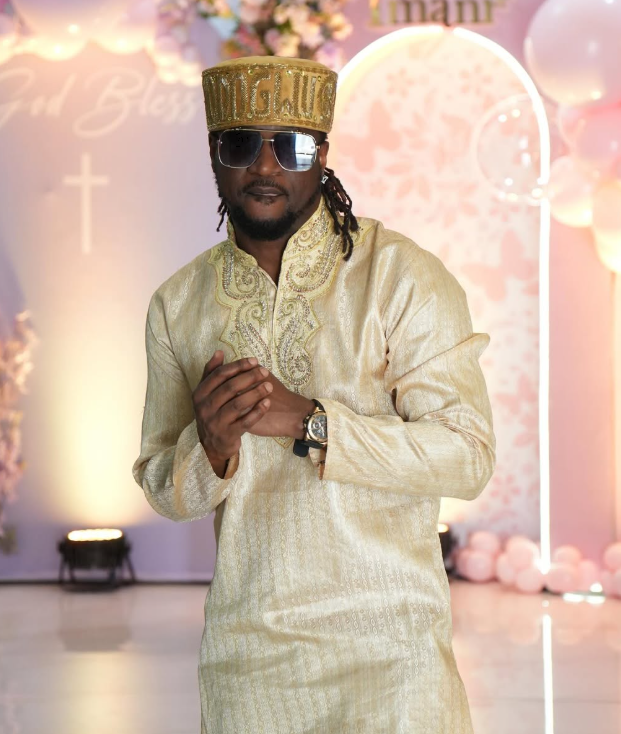
Let’s dive into the world of the artist fans lovingly demand to “kill us with music”.
Early Life and The Making of a Duo
Born Paul Nonso Okoye on 18 November 1981, in Jos, Nigeria, Rudeboy shares his birthplace and birthdate with his identical twin, Peter Okoye. Their journey into music began early, attending St. Murumba secondary school in Jos together and joining a music and drama club. Here, they honed their skills by dancing and performing cover songs by Western icons like MC Hammer, Bobby Brown, and Michael Jackson, artists they would later cite as musical inspirations.
After their initial dancing and singing group, ‘The Smooth Criminals,’ disbanded, Peter and Paul formed their own duo, eventually settling on the name “P-Square”. A pivotal moment came in 2001 when they won the Nigerian talent competition “Grab Da Mic,” which led to Benson & Hedges sponsoring their debut album. This opportunity came while they were still in their first year at the University of Abuja, studying Business Administration. Their debut album, Last Nite, was released under Timbuk2 music label in 2003, garnering them a nomination for ‘The Most Promising African Group’ at the KORA Awards 2003.
The Musical Nucleus: P-Square’s Sound and Rudeboy’s Role
P-Square quickly became a dominant force in Nigerian and African music. Their sound was a vibrant fusion, blending R&B, Hip Hop, Afropop, and Dance Pop. Over their career, they demonstrated remarkable musical diversity, venturing into genres including EDM, Reggaeton, Reggae, Disco, Rock, Gospel pop, Bongo Flava, and Soukous. Their music was characterised by relaxed rhythms, evocative melodies, and was undeniably dance-floor ready. They were also renowned for their big-budget, game-changing music videos, which they felt significantly contributed to their career transformation.
Within the P-Square dynamic, Rudeboy was widely regarded as the stylistic and musical nucleus of the duo. He was deeply rooted in the art of songwriting, crafting poignant melodies, and getting the majority of the recording process right. Paul himself has stated he was the writer, singer, producer, and “everything” in the project from the beginning, even incorporating his producing name “Rudeboy” into their songs like “Bizzy Body”. He reportedly wrote most of their hit songs and drew inspiration from his dreams, waking up to record melodies and beats he heard, including for hits like “Do Me” and “No One Like You”. While Paul focused on the music, Peter handled the live stage performance, and their elder brother Jude Okoye managed the video direction.
The Tumultuous Split and Stepping Out Solo
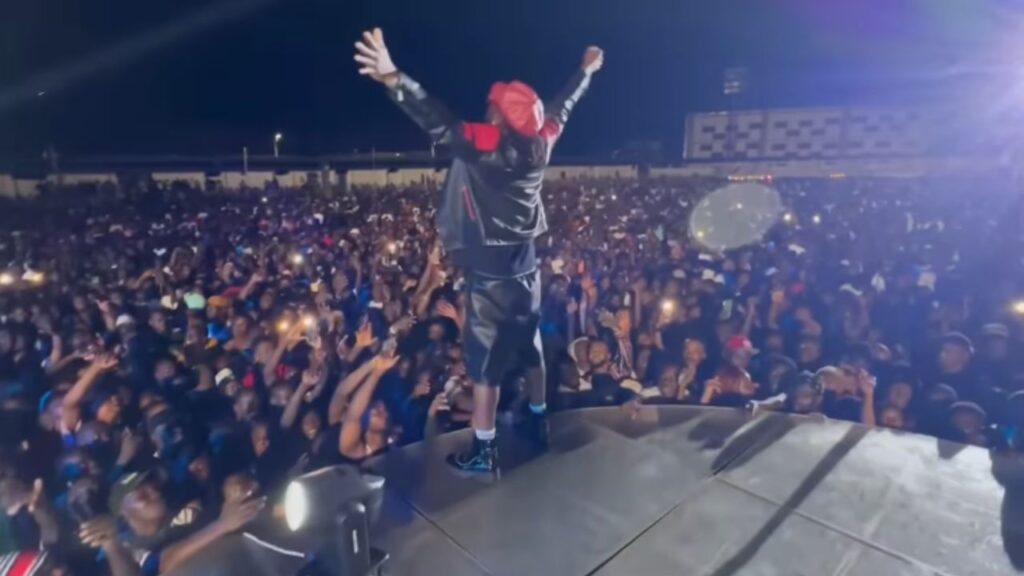
Despite their massive success, including selling millions of albums, receiving numerous awards, and being named “Artistes of the Decade” at the MTV Africa Music Awards 2015, tensions rose between the brothers. A significant rift occurred in 2017, leading to the group’s disbandment after a public spat involving familial divides and alleged betrayal. One source of disagreement was reportedly Peter’s perception of a lopsided input of songs on their joint albums, with Paul’s songs getting the larger share.
Following the split, both brothers pursued solo careers, adopting their pseudonyms, Rudeboy (Paul) and Mr. P (Peter). Stepping out as a solo artist seven years ago was challenging for Rudeboy. Having previously focused primarily on the studio work within P-Square, he found himself needing to learn the business aspects he had left to others, such as marketing, social media, distribution, and media relations. He had to become a “student again” to navigate the industry outside the group structure.
Paul viewed the split as a family issue that P-Square ultimately paid the price for. Despite fans’ pleas and the public scrutiny, he largely maintained a stoic silence on the matter, stating he owed nobody an explanation because he respected family so much. He found comfort in performing his own music and made a promise to himself not to perform P-Square songs as a solo act, though he sometimes drops snippets.
Finding His Voice: Rudeboy’s Solo Success
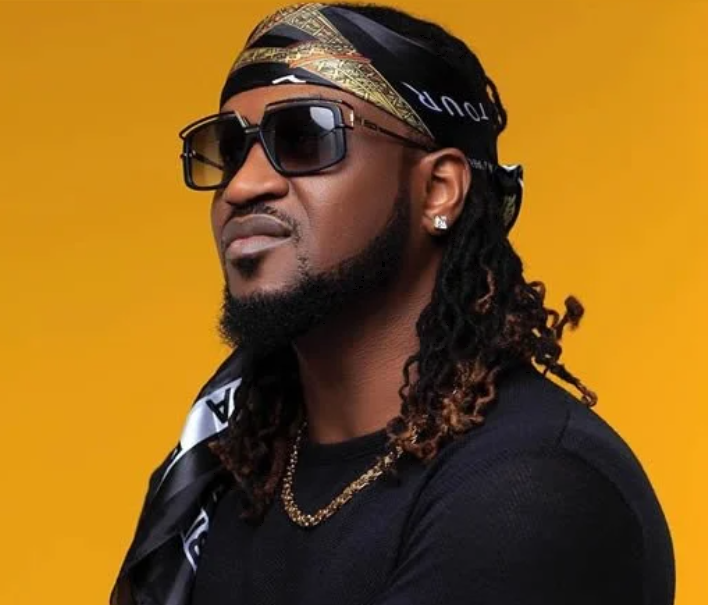
Rudeboy launched his solo career, releasing his debut solo tracks ‘Fire Fire’ and ‘Nkenji Keke’ in 2017. While his initial solo phase involved playing smaller concerts, he found his stride and confidence as he began dropping hits. His song “Reason With Me” became a massive success, generating the highest views on YouTube in Africa in 2019. The music video for “Reason With Me,” directed by Clarence Peters, boasts over 189 million views on YouTube, making it Rudeboy’s most-viewed video.
Rudeboy describes “Reason With Me” as the song that gave him “fresh air” and made him realise who he was before, helping him heal from the heartbreak of the split through music. He noted that the song, despite having a “poor man’s video” with “no dancing, no shaking of bumbum,” surpassed the YouTube views of even major P-Square hits like “Personally” within a shorter time frame. This breakthrough gave him the confidence to perform in stadiums again. Other successful solo singles include “Audio Money,” which tied into the Nigerian zeitgeist, and “Woman”. In 2019, he established his own record label, Fire Department Inc..
Rudykillus: Album Themes and Sound
Rudeboy released his debut solo album, Rudykillus, in 2021. The album title itself is a direct nod to his dedicated fanbase, the “Fire Department,” who constantly exclaimed “Rudy, kill us o” or “Rudy, kill us with music” every time he released a hit song, demanding to be metaphorically killed by his music.
The 15-track album extensively covers major themes Rudeboy focuses on: love, women, relationships, and the necessity of money. It explores the cliche ‘poverty aesthetic’ in songs like ‘Ego Nekwu’ and ‘Broke Land,’ which serves as a “reality check song” about avoiding being broke. The album also includes contemporary elements, though one review found them flimsy. Rudeboy aimed to satisfy different audiences with the album, incorporating Igbo songs, including gospel and wedding songs.
Sonically, Rudykillus was described as mostly mid-tempo and methodical, occasionally sounding stylistically stale and better suited to 2010. However, tracks like ‘Ayoyo’ and ‘Catch Your Fever’ offered moments of freshness. ‘Ayoyo,’ for instance, borrows from South African Afro-House and shares sonic similarities with Master KG’s ‘Jerusalema’. Despite attempts to evolve, the album’s sound remained largely “familiar”. Rudeboy himself acknowledged including reggae and dancehall elements due to their popularity in the Caribbean and island countries, and incorporating traditional melodies.
The Man Behind the Music: Name, Influences, Passion
The name “Rudeboy,” which Paul used even while in P-Square, comes from Jamaican terminology. In this context, “Rudeboy” or “bad boy” doesn’t mean being ill-mannered; it means being exceptionally good at something, specifically musically. Paul explained that he earned the name back in Jos when he was a producer who demanded high standards and sometimes turned away potential clients who lacked talent, leading people to call him “that rude guy” or “rude producer”. He embraced it, and it became his musical identity.
Beyond his early Western influences like MC Hammer, Bobby Brown, and Michael Jackson, Rudeboy’s music is often described as sounding like the artists who dominated his childhood, particularly the 1970s and ’80s highlife scene, citing influences like Osadebe to Oliver de Coque. His approach involves extracting traditional melodies and combining them with messages on life, love, money, and family.
Paul approaches music with deep passion. He described how songs often come to him in dreams. Despite the challenges of going solo, his focus remained on delivering “good music,” which he credits for helping him regain fan support after the split. One review suggested that for an established artist like Rudeboy, making music is primarily about passion rather than chasing money.
Family Life
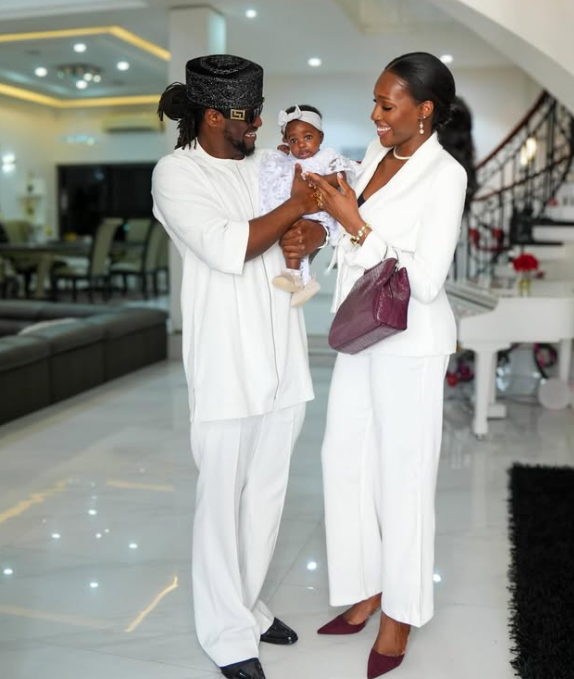
Rudeboy’s personal life has been closely linked to his music, particularly through the P-Square journey with his twin brother. He married Anita Isama, whom he met in 2004 while studying at the University of Abuja, on 22 March 2014. They have three children: a son, Andre, born in Atlanta, Georgia, in 2013, and a set of twins born in Atlanta in 2017. The family also had homes next door to each other in Atlanta at one point. In August 2021, his wife filed for divorce. As mentioned earlier, Rudeboy viewed the P-Square split as a familial issue and chose to remain silent on the matter publicly.
However, recent reports suggest a new development in his personal life. It is reported that singer Paul Okoye has married a new partner named Ifeoma Ivy. The source states that he has reportedly “tied the knot with his girlfriend, Ifeoma Ivy”. The couple was reportedly seen in a video where Paul visited Ifeoma Ivy’s family for “speculated marriage rights”. Furthermore, pictures from a private event online showed the couple in traditional marriage attires, kneeling before their parents. It is also rumoured that Ifeoma is pregnant and they are expecting their first child together. Rudeboy himself reportedly hinted at remarrying previously, unveiling hashtag options for himself and Ifeoma.
Wealth and Recognition
Rudeboy has achieved significant financial success in his solo career. As of late 2025, one source estimates Paul Okoye (Rudeboy)’s net worth at $16 million, ranking him as the 4th richest musician in Nigeria. His sources of wealth include royalties, advances, live performances, music streaming sites, and licensing fees. He is known to own luxury cars such as a Bentley Bentayga, Mercedes-Benz GLE43 AMG 4MATIC Coupe, and a Lamborghini Aventador Roadster.
Individually and as part of P-Square, Rudeboy has been recognised with numerous awards and nominations across Africa and internationally. P-Square won multiple Headies Awards, MTV Africa Music Awards, Channel O Music Video Awards, and KORA Awards, and were nominated for BET Awards, Soul Train Awards, MOBO Awards, and MTV Europe Music Awards. Their achievement of being named “Artistes of the Decade” at the MTV Africa Music Awards 2015 underscores their immense cultural impact. Rudeboy’s solo hit “Reason With Me” also earned significant recognition for its massive YouTube viewership.
Controversies and the Road Ahead
Rudeboy’s career, particularly as part of P-Square, has seen its share of controversies. The most significant was the highly publicised split from his brother Peter, driven by personal and business disagreements. There were also earlier controversies, such as an incident at a Guinness show involving performance timing conflicting with Sean Paul’s live broadcast. The duo also faced criticism for allegedly sampling Western songs in their records, which they defended as building on existing artistic techniques.
Adding to the narrative, Rudeboy and Mr. P recently dropped separate solo versions of a new song titled ‘Winning,’ sparking fresh tension and debate among fans over who wrote or owns the song.
Despite the split and solo endeavours, P-Square eventually reunited in 2021, ending their bitter feud. Since their reconciliation, they have embarked on a 100 Cities World Tour in 2022 and have announced plans for a forthcoming album.
Rudeboy’s journey is a testament to his enduring talent and resilience. From being the foundational musical mind of one of Africa’s biggest groups to finding his own voice and massive success as a solo artist, he continues to shape the Afrobeats soundscape. His story, marked by family, music, challenges, and triumphs, remains a compelling chapter in the history of Nigerian popular music.
